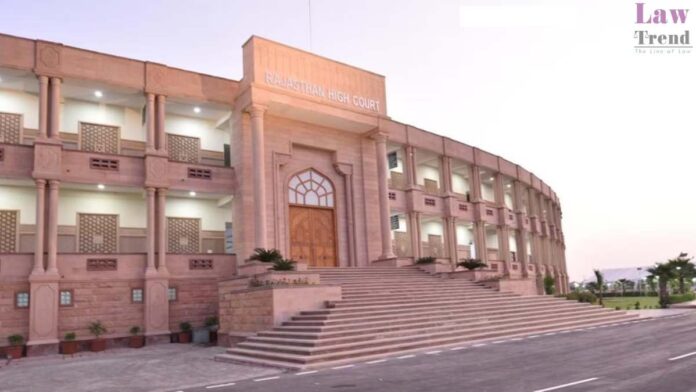The Rajasthan High Court has dismissed a petition filed by a law student challenging the inclusion of a question related to the Ram Janmabhoomi verdict in a university exam, firmly upholding the principles of academic freedom and legal discourse.
Justice Anoop Kumar Dhand, delivering the judgment on Thursday, observed that academic and personal opinions on judicial decisions—even when they concern sensitive subjects—do not constitute a religious offence under Section 295A of the Indian Penal Code unless there is clear evidence of deliberate and malicious intent to provoke.
“An academic or personal opinion expressed by a student, teacher, or scholar on a legal judgment, even one involving sensitive issues, cannot be equated with any religious attack,” Justice Dhand remarked. He further stated that constructive legal analysis is a “positive exercise” in critical thinking and is central to the study of law.
The case arose from a petition by Anuj Kumar Kumawat, a law student at Dr Bhimrao Ambedkar Law University, who objected to a passage in the Legal Languages, Legal Writing and General English paper dated August 12, 2024. Kumawat claimed the content was inflammatory, hurt religious sentiments, and violated Section 295A of the IPC as well as Article 25 of the Constitution, which guarantees freedom of religion.
Seeking disciplinary action, removal of the exam content, and a public apology, the petitioner argued that the inclusion of such a question was unjustified. The Court, however, rejected all demands, stating: “Challenging a certain portion of a question paper solely on the ground that it hurts religious sentiments under Section 295A IPC is not legally sustainable unless it is established that the content was included with deliberate and malicious intent.”
Justice Dhand also cautioned against curtailing the autonomy of educational institutions based on subjective sentiment, highlighting that no other student had objected to the exam content. “Law must be governed by reasons and not by sentiments,” he said.
While acknowledging that freedom of speech under Article 19(1)(a) is subject to reasonable restrictions under Article 19(2), the Court affirmed the importance of reasoned and respectful critique of judicial decisions. It held that such criticism is legally permissible if it is not malicious, contemptuous, defamatory, or derogatory.
Terming the plea as “misconceived” and devoid of merit, the Court dismissed the petition along with all pending applications.




